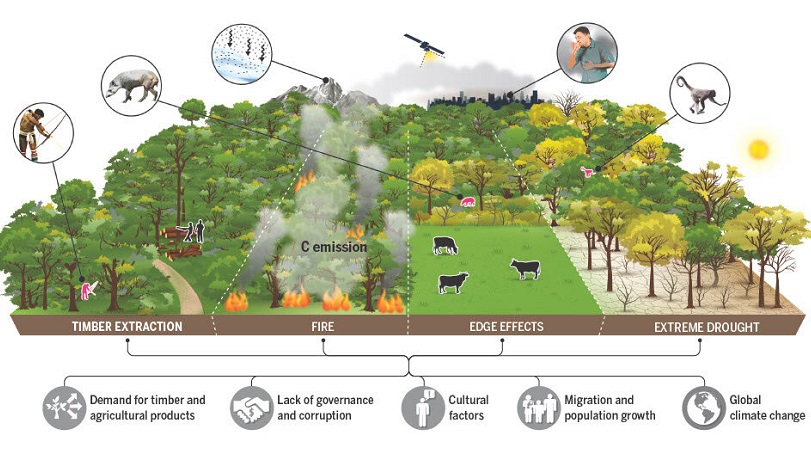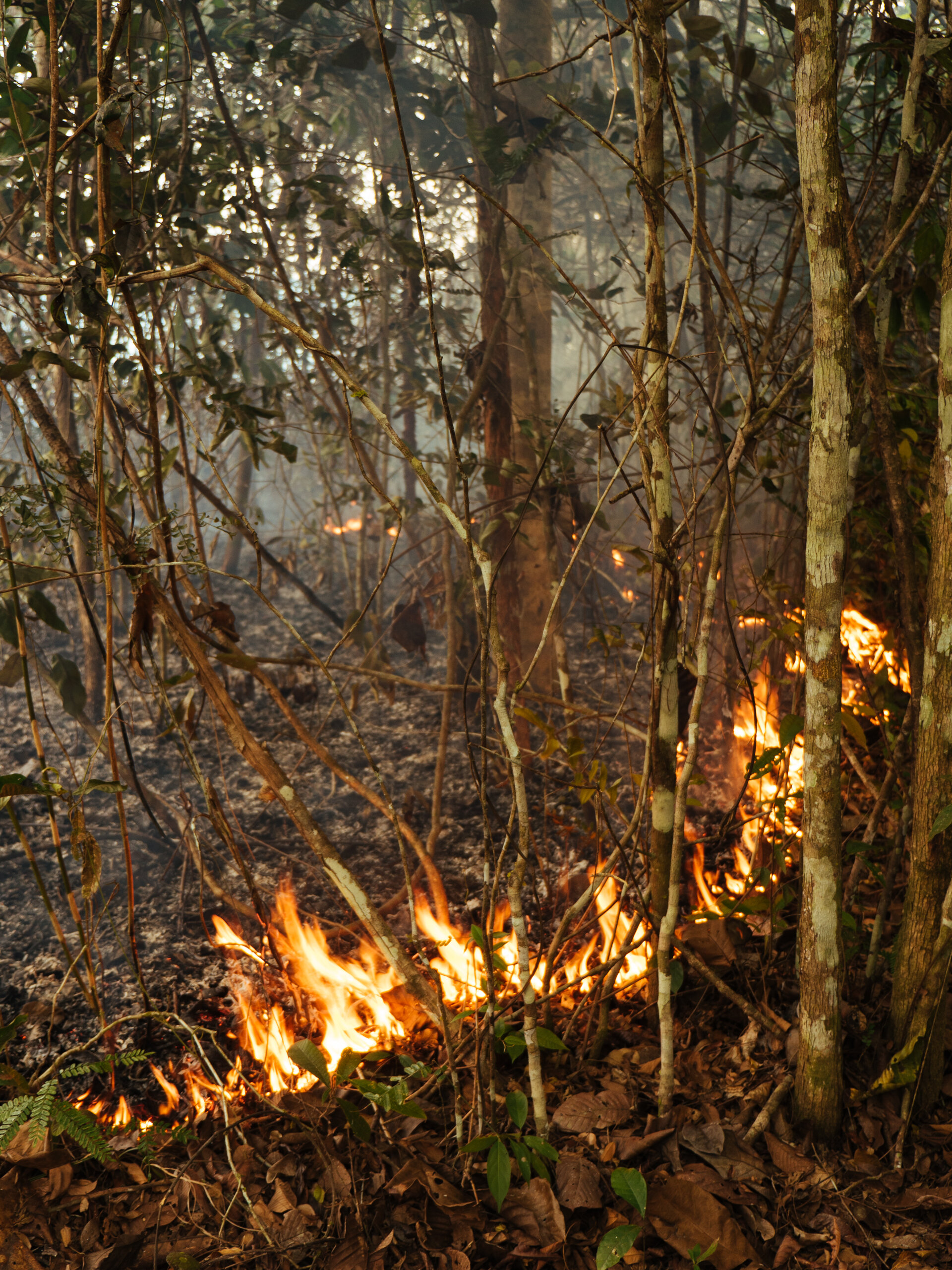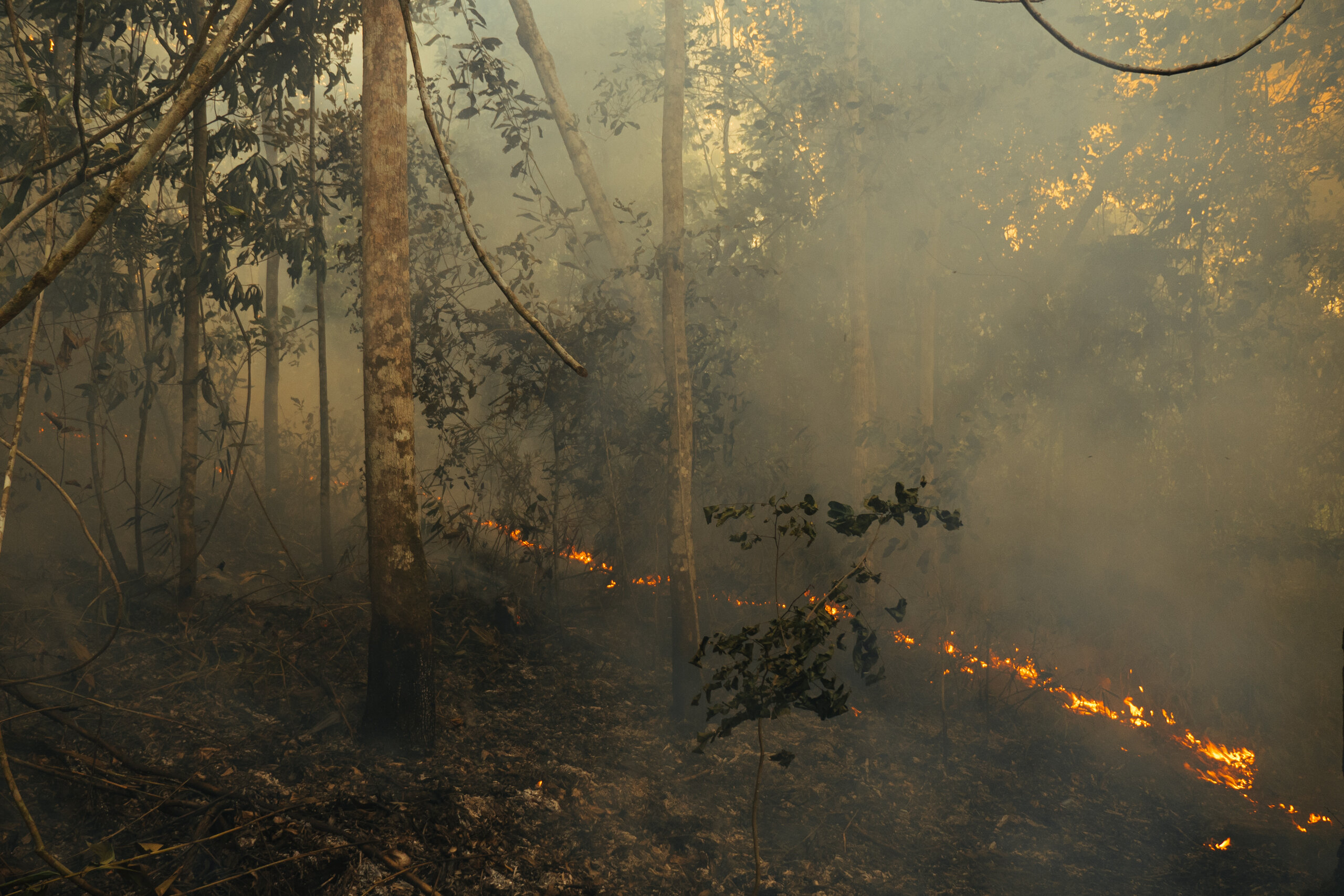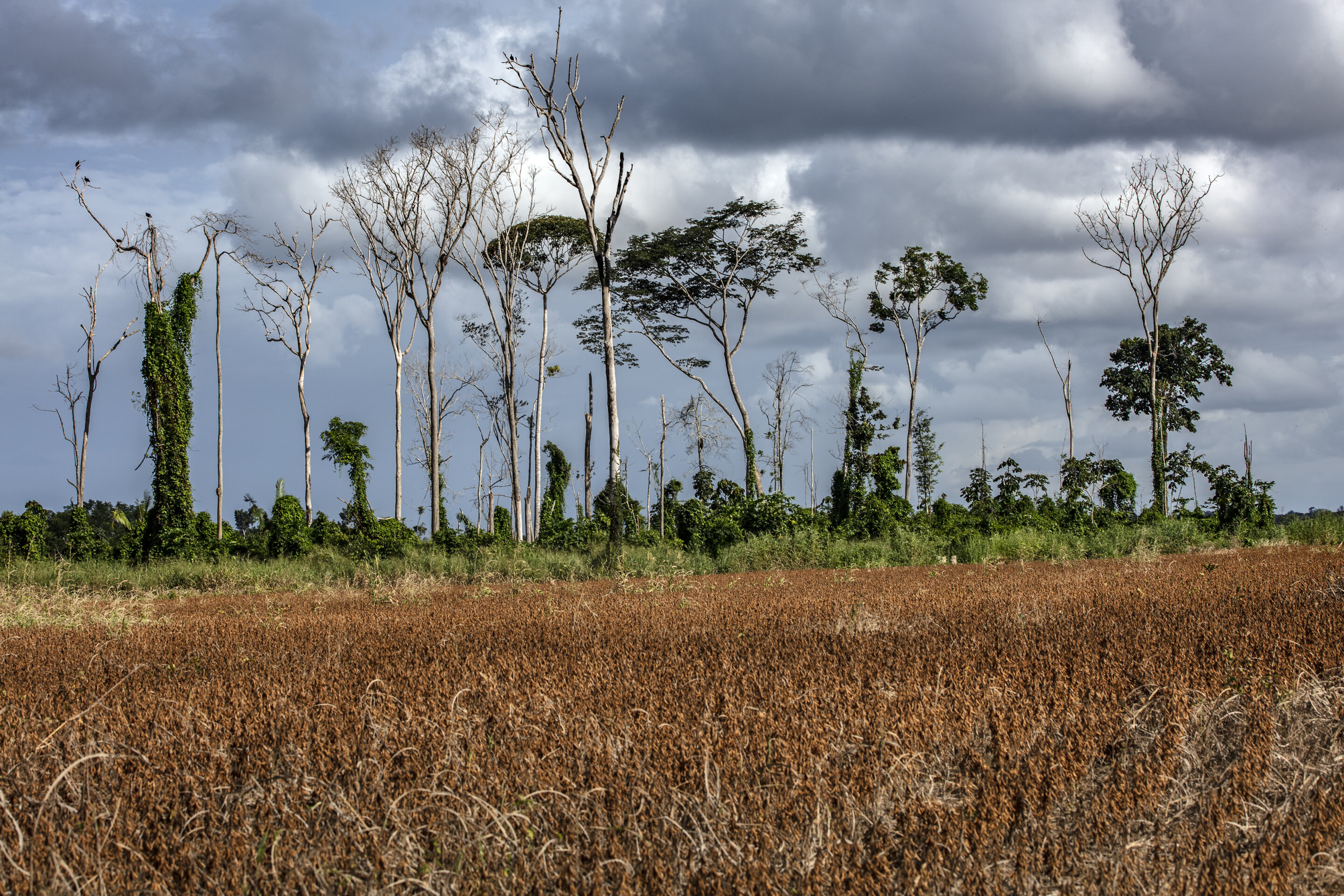11 Dec 2024

Tired Earth
By The Editorial Board

The Amazon rainforest has been degraded by a much greater extent than scientists previously believed with more than a third of remaining forest affected by humans, according to a new study published on January 27 in the journal Science.
The paper was led by an international team of 35 scientists and researchers, from institutions such as Brazil's University of Campinas (Unicamp), the Amazon Environmental Research Institute (IPAM), National Institute for Space Research (INPE), and U.K.'s Lancaster University. It shows that up to 38% of the remaining Amazon forest area—equivalent to ten times the size of the U.K.—has been affected by some form of human disturbance, causing carbon emissions equivalent to or greater than those from deforestation.
The work is the result of the AIMES (Analysis, Integration and Modeling of the Earth System) project, linked to the Future Earth international initiative, which brings together scientists and researchers who study sustainability.
The findings are the result of an analytical review of previously published scientific data, based on satellite imagery and a synthesis of published data outlining changes in the Amazon region between 2001 and 2018. The authors define the concept of degradation as transient or long-term changes in forest conditions caused by humans. Degradation is different from deforestation, where the forest is removed altogether and a new land use, such as agriculture, is established in its place. Although highly degraded forests can lose almost all of the trees, the land use itself does not change.

The authors evaluate four key disturbances driving forest degradation: forest fire, edge effects (changes that occur in forests adjacent to deforested areas), selective logging (such as illegal logging) and extreme drought. Different forest areas can be affected by one or more of these disturbances.
"Despite uncertainty about the total effect of these disturbances, it is clear that their cumulative effect can be as important as deforestation for carbon emissions and biodiversity loss," said Jos Barlow, a Professor of conservation science at Lancaster University in the U.K. and co-author of the paper.
The scientists assess that the degradation of the Amazon also has significant socioeconomic impacts, which should be further investigated.

"Degradation benefits the few, but places important burdens on many," says Dr. Rachel Carmenta, a co-author based at the University of East Anglia, in the U.K. "Few people profit from the degradation processes, yet many lose out across all dimensions of human well-being—including health, nutrition and the place attachments held for the forest landscapes where they live. Furthermore, many of these burdens are hidden at present; recognizing them will help enable better governance with social justice at the center."
In a projection made by the team for 2050, the four degradation factors will continue to be major sources of carbon emissions into the atmosphere, regardless of the growth or suppression of deforestation of the forest.
"Even in an optimistic scenario, when there is no more deforestation, the effects of climate change will see degradation of the forest continue, leading to further carbon emissions," says Dr. David Lapola, leader of the study and researcher at the Center for Meteorological and Climatic Research Applied to Agriculture at Unicamp. However, "preventing the advance of deforestation remains vital, and could also allow more attention to be directed to other drivers of forest degradation."

The authors propose creating a monitoring system for forest degradation, as well as prevention and curbing of illegal logging and controlling the use of fire. One suggestion is the concept of "smart forests" which, like the idea of "smart cities," would use different types of technologies and sensors to collect useful data in order to improve the quality of the environment.
"Public and private actions and policies to curb deforestation will not necessarily address degradation as well," says Dr. Lapola. "It is necessary to invest in innovative strategies."
Source : phys.org
Comment